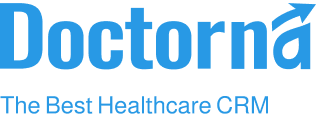Understanding the Stakes
Before exploring how healthcare CRM security compliance is achieved, it’s crucial to fully grasp the significant risks and far-reaching consequences associated with data breaches and regulatory violations in the healthcare sector. The sensitivity of patient data demands unwavering attention to security protocols.
The healthcare sector handles Protected Health Information (PHI), encompassing a vast array of deeply personal details, including medical histories, diagnoses, treatment plans, genetic information, and billing records. The exposure of this sensitive data can inflict severe harm on individuals, leading to:
- Identity Theft and Financial Fraud: Cybercriminals can exploit stolen health information for financial gain, opening fraudulent accounts or making unauthorized purchases.
- Emotional Distress and Privacy Violations: The intimate nature of health data means its breach can cause significant emotional distress, anxiety, and a profound violation of an individual’s privacy (PMC).
- Hindrance to Care: Data breaches can disrupt healthcare operations, leading to postponed appointments and delayed procedures, directly impacting patient care.
To address these risks, stringent data protection standards are mandated globally and within the UAE:
- Global Regulations:
- The Health Insurance Portability and Accountability Act (HIPAA) in the United States establishes national standards to protect the privacy and security of PHI, outlining permitted uses and disclosures, and mandating safeguards for electronic PHI (ePHI). Non-compliance can result in significant financial penalties and even criminal charges (NCBI).
- The General Data Protection Regulation (GDPR) in the European Union sets guidelines for the collection and processing of personal information of individuals within the EU, regardless of where the data controller is based.
This includes health data and imposes strict obligations on organizations to ensure its security and respect data subject rights, with potential fines reaching into the millions of euros.
- Local Regulations in the UAE
The UAE has established its comprehensive data protection framework:
- Federal Decree Law No. 45 of 2021 on Personal Data Protection governs the processing of personal data across the UAE (excluding specific free zones), emphasizing fair, transparent, and lawful processing, purpose limitation, data minimization, accuracy, and secure storage.
Within specific economic zones: - Dubai International Financial Centre (DIFC) Law No. 5 of 2020 applies within the DIFC jurisdiction, outlining data protection principles, data subject rights, and obligations for controllers and processors.
- The Abu Dhabi Global Market (ADGM) Data Protection Regulations 2021 govern data processing within the ADGM, emphasizing accountability, transparency, and security measures.
- Furthermore, Federal Law No. 2 of 2019 concerning the Use of Information and Communication Technology in Health Fields specifically addresses the confidentiality of patients’ information within the healthcare sector in the UAE.
The threat landscape is continuously evolving, with cybercriminals increasingly targeting the healthcare sector due to the high value of the data held.
In 2020 alone, over 102 million healthcare records were exposed globally due to cyberattacks. The UAE, undergoing rapid digital transformation, is also a target, facing an average of 50,000 cyberattacks daily across various sectors. Ransomware attacks, email compromise, and insider threats are significant concerns for healthcare organizations.
Failure to adhere to these stringent data security and compliance regulations carries severe consequences:
- Substantial Financial Penalties: Regulatory bodies like the HHS Office for Civil Rights (OCR) for HIPAA and data protection authorities under GDPR and UAE laws impose significant fines for violations.
- Legal Repercussions: Data breaches can lead to lawsuits from affected individuals, resulting in further financial burdens and legal complexities.
- Irreparable Reputational Damage: Public disclosure of a data breach can severely erode patient trust and damage an organization’s credibility, potentially leading to loss of patients.
The substantial risks and stringent regulatory landscape underscore the paramount importance of integrating robust security compliance measures into every aspect of a healthcare organization’s digital strategy.
How Healthcare CRM Systems Integrate Robust Security
Modern healthcare CRM systems are not simply tools for managing patient interactions; they are sophisticated platforms incorporating a multitude of security features designed to ensure stringent healthcare CRM security compliance from the ground up.
- Encryption: To protect data confidentiality, healthcare CRM systems employ advanced encryption algorithms. Data at rest and data in transit are encrypted.
- Access Controls and Role-Based Permissions: Administrators can define specific roles and assign permissions, ensuring authorized personnel access relevant information and bolstering.
- Audit Trails and Logging: Comprehensive audit trails meticulously record data access, modifications, and system activity for monitoring and investigation, crucial for healthcare CRM security compliance.
- Secure Authentication and Authorization: Robust authentication mechanisms, such as multi-factor authentication (MFA), secure user identities, are a vital component of healthcare CRM security compliance.
- Regular Security Updates and Patching: Vendors regularly release updates and patches to address vulnerabilities, essential for continuous healthcare CRM security compliance.
These integrated security features within Healthcare CRM systems form a strong foundation for achieving and maintaining the necessary levels of healthcare CRM security compliance required in the healthcare industry.
Addressing Compliance Requirements with Healthcare CRM
Beyond inherent security features, the functionality embedded within healthcare CRM systems plays a direct role in helping healthcare organizations meet the specific requirements of various data security and compliance regulations, contributing significantly to overall healthcare CRM security compliance.
- Data Minimization and Purpose Limitation: Features help define data collection purposes and retention policies, aligning with CRM security compliance.
- Consent Management: Tools securely record and manage patient consents for data processing and communication, a crucial aspect of security compliance.
- Data Subject Rights Management: Workflows and tools efficiently manage patient requests related to data rights.
- Data Breach Notification Features: Some platforms offer functionalities to log incidents and track affected individuals, contributing to security compliance.
- Compliance Reporting and Documentation: Systems can generate reports on data access and consent records.
The specific functionalities offered by healthcare CRM solutions are instrumental in translating regulatory requirements into practical workflows, thereby streamlining the path to comprehensive security compliance.
Best Practices for Healthcare CRM Security Compliance
While the features and functionalities of a healthcare CRM are crucial, their effectiveness in ensuring security compliance is significantly enhanced by the adoption of robust organizational best practices.
- Choosing a Compliant Vendor: Select a healthcare CRM solution with a strong security track record and understanding of relevant regulations.
- Implementing Strong Internal Security Policies: Develop and enforce comprehensive policies for data access, usage, and incident response.
- Regular Staff Training on Data Security and Compliance: Educate staff on data privacy, security protocols, and their responsibilities.
- Conducting Regular Security Audits: Perform periodic internal and external security assessments.
- Staying Updated on Regulatory Changes: Monitor evolving data security and compliance regulations and adapt accordingly.
Adhering to these best practices is paramount for maximizing the security and compliance benefits of a healthcare CRM system and fostering a culture of data security within the organization.
Conclusion
In conclusion, the integration of a robust healthcare CRM software offers a powerful means for healthcare organizations to navigate the complexities of data security and compliance in the modern digital landscape.
Prioritizing security compliance is not merely about adhering to regulations; it’s about safeguarding patient trust and ensuring the ethical and responsible use of sensitive information.
By understanding the stakes, leveraging the built-in security features and compliance functionalities of modern CRM systems, and adhering to stringent best practices, healthcare providers can build a more secure and trustworthy environment for their patients.
Looking for a Healthcare CRM solution that prioritizes security and compliance? Doctorna is designed with robust security features and a deep understanding of healthcare regulations, including those relevant in the UAE.
Our platform empowers your clinic or hospital to streamline patient interactions while maintaining the highest standards of data protection. Visit our website today for a consultation and learn more.







